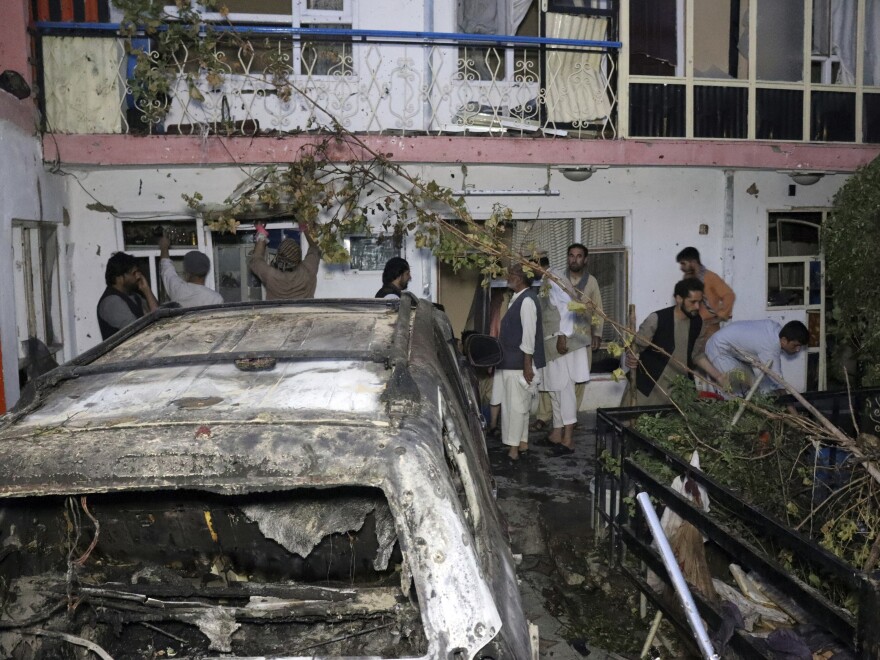The U.S. Department of Defense says it will provide money to the families affected by the botched drone strike on Aug. 29 that killed 10 civilians, including up to seven children, in Kabul, Afghanistan.
At a Pentagon news briefing on Tuesday, a Wall Street Journal reporter asked if anyone in the U.S. military or in the Defense Department had made contact with any of the victims' families.
Pentagon press secretary John Kirby said in a statement that, two days after the news conference, Colin Kahl, the undersecretary of defense for policy, met with Steven Kwon, president of Nutrition and Education International. One of the people killed was Zemari Ahmadi, an aid worker with Kwon's organization.
Kahl apologized again on behalf of the DOD "for the loss of life" from the strike and reiterated that "Mr. Zemari Ahmadi and others who were killed were innocent victims who bore no blame and were not affiliated with ISIS-K or threats to U.S. forces."
Kwon said Ahmadi's had worked with NEI for years, "providing care and lifesaving assistance for people facing high mortality rates in Afghanistan."
According to Kirby, "Dr. Kahl reiterated Secretary of Defense Lloyd Austin's commitment to the families, including offering ex gratia condolence payments, in addition to working with the State Department in support of Mr. Ahmadi's family members who are interested in relocation to the United States."
It has not been specified how much the condolence payments would be.
With the planned drone strike, U.S. forces were aiming to target ISIS-K members behind the Aug. 26 attack at the Kabul airport that killed more than 150 people, including 13 U.S. military members.
Originally, the Pentagon said the drone strike was a success, even though some civilians had died in the attack. But after reports from The New York Times and Washington Post, the Pentagon reversed course and said the strike was a "tragic mistake."
"We now assess that it is unlikely that the vehicle and those who died were associated with ISIS-K, or a direct threat to U.S. forces," Marine Gen. Frank McKenzie, head of U.S. Central Command, said on Sept. 17.
Ex-gratia condolence payments are not a requirement when there is property damage, personal injury or death caused by U.S. military forces. But they are, in part, used as a method to "maintain friendly relations" in areas where U.S. forces are operating.
Copyright 2021 NPR. To see more, visit https://www.npr.org.




